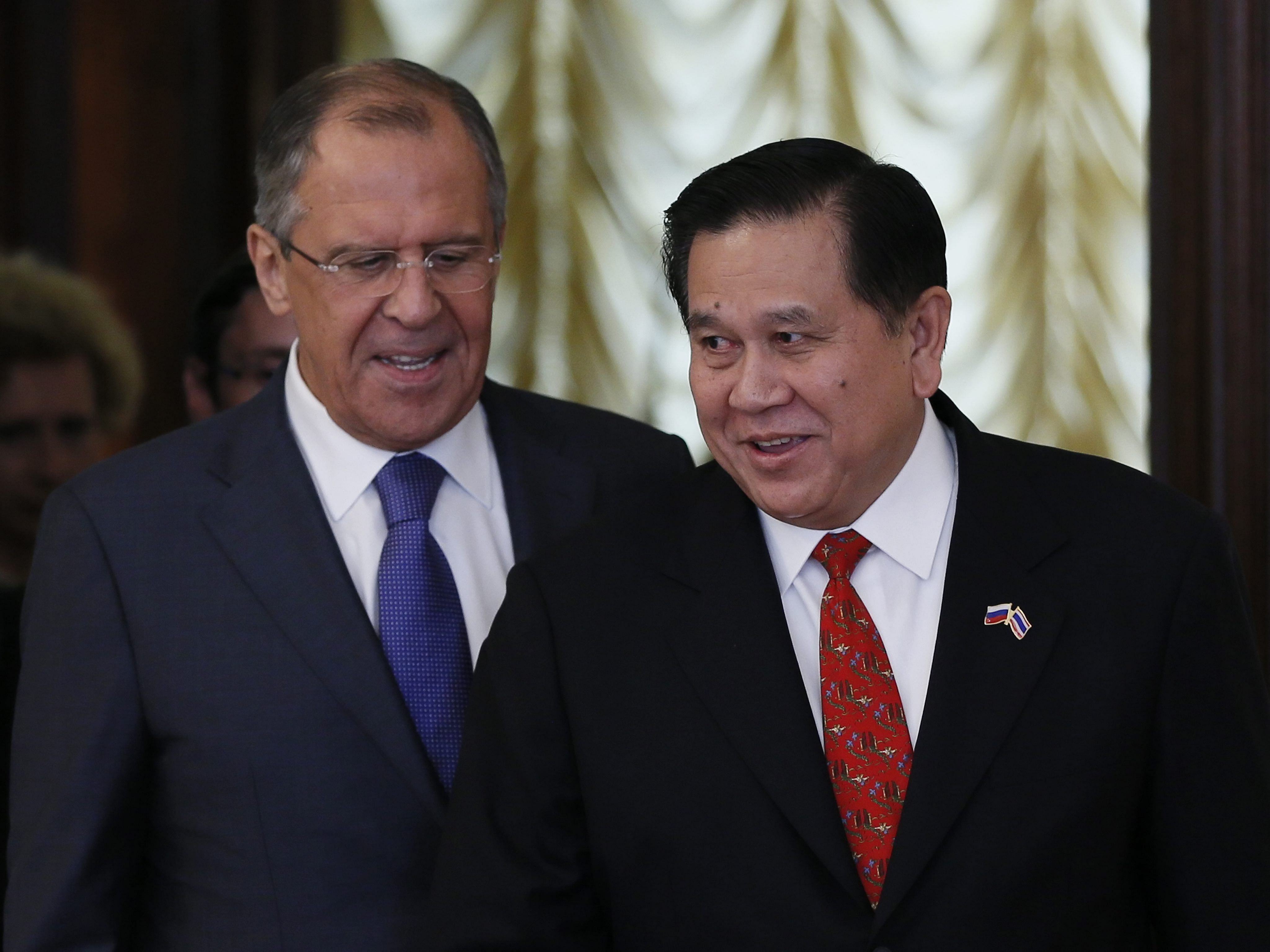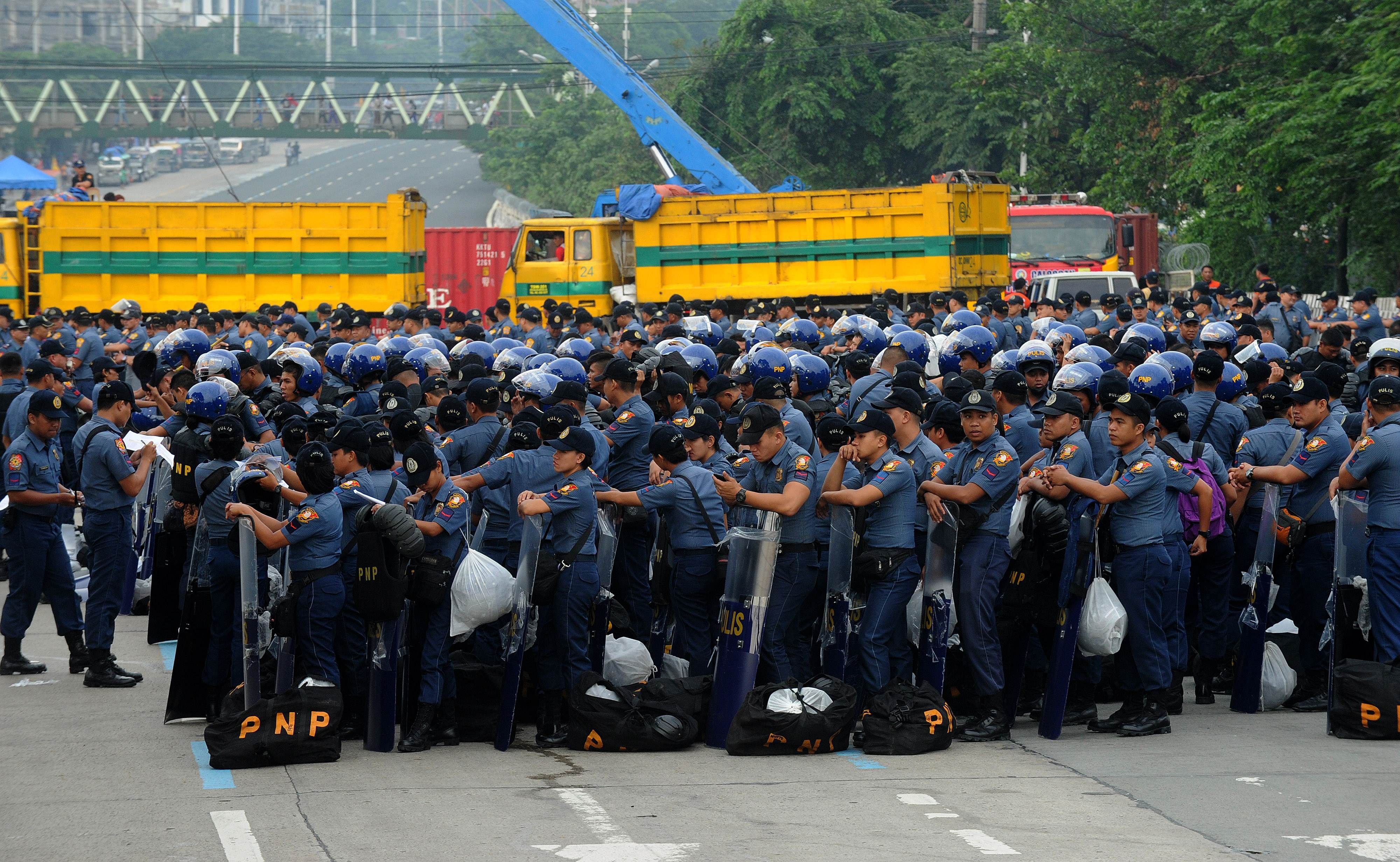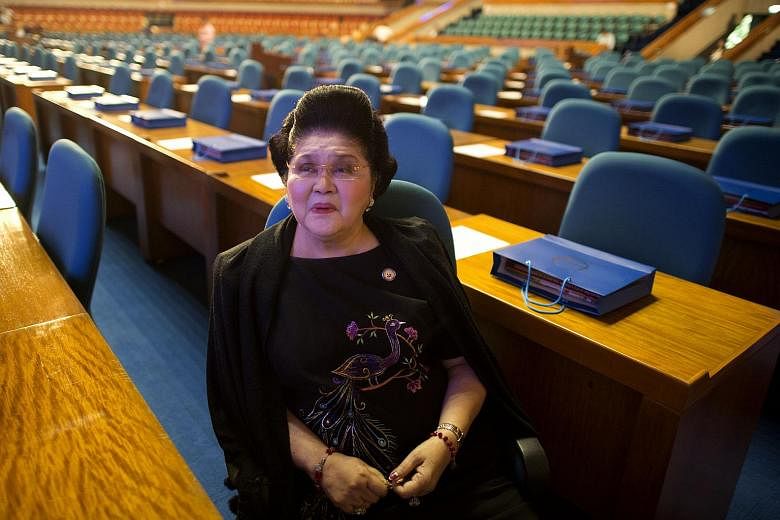1. Thai diplomacy faces mammoth challenges
In its editorial on July 27, 2015, The Nation calls on the government to improve the nation's ties with key partners.

Thailand's political strife has greatly affected the country's diplomacy, and the situation is not expected to ease any time soon.
In addition to the United States, which has been very critical of the military rulers, much to the resentment of those supporting a "long" reform process - who constitute quite a big number in Thailand, countries like France, Australia or those closer to home like Singapore, Cambodia and Laos have more or less been drawn to the Thai conflict.
Complications vary as each country represents a different level, or even levels, of sensitivity.
The problems with the United States, for example, seem to concern "principles" primarily, at least on the surface.
Many Thais are suspecting that Washington, in supporting one side of the conflict, has a hidden agenda, possibly involving business interests.
Even those not as suspicious are accusing American foreign officials of being hypocritical busy-bodies. The two countries' relations are at an all-time low and are unlikely to be normalised quickly no matter how things transpire in Thailand.
Washington, Thailand's long-time ally, has been facing much scrutiny, because, like it or not, its policy, threats and personal attitudes of key diplomatic players fly in the face of not just normal political institutions like Thai courts, the National Anti-Corruption Commission and the Democrat Party.
Thailand's political strife has undeniably affected the highest institution, the monarchy, as well.
It's, therefore, unwise for the Americans to be blatantly taking sides. But Thai policy-makers of today and the future are in an unenviable position as well. By showing obvious partiality, the United States is making it hard for a big number of Thais to back them, when it comes to laying down foreign policies, in the long run.
In some other cases, "principles" are being clouded by legal matters.
Thailand, it has been reported, has asked the French ambassador to look into the whereabouts of suspects sought under arrest warrants.
Among them, reportedly, is a former leader of the United Front of Democracy against Dictatorship, one academic and an activist.
The three are reported to have received political asylum from the French government.
Two of them have allegedly been carrying out activities against the Thai leadership.
Australia downgraded ties with Thailand in the wake of the military coup that toppled the Yingluck government.
Military relations between the two countries dating back some seven decades were hampered by a Thai political conflict that even locals who are neutral cannot pinpoint who is to blame.
Then there is the European Union, which has always put pressure on the "undemocratic" Thai leadership, and neighbouring countries, which have allegedly provided secret sanctuaries for those belonging to one camp of the Thai divide.
Thailand's relations with the said countries, therefore, face an unfavourable situation where negativity, prejudices and mistrust feed on one another and these problems could get a lot worse before we see improvement.
In other words, as long as the military government remains in power or if the next government is dominated by Thais who resent the "foreign pressure", Thailand and its "friends" could drift further and further apart.
Not everything is up to Thailand, though.
While the country bears the burden of sorting out its mess and trying to understand the "concern" of foreign nations at the same time, understanding needs to work both ways. A lot of Thais think that foreign understanding is in short supply, let alone neutrality. The situation is amplifying mistrust in a 360-degree manner. And when mistrust prevails, more often than not it hurts diplomacy.
2. Vital to boost Malaysia's human capital development
In its editorial on May 26, 2015, The Star reminds the government to spend on technical education to improve people's lives

Many of us are familiar with the Government's Vision 2020 aspiration to see Malaysia achieve a national per capita income of at least US$15,000 (S$20,574) , which allows us to be classified as an advanced economy.
But we must not forget that there are targets in several other areas that together form the platform on which the country stands as it rises to that income level.
Human capital development is one of these areas. People with the necessary knowledge, skills, ethics and morality are required to drive inclusive and sustainable economic growth in the last leg of the journey towards realising Vision 2020.
It is therefore fitting that one of the six strategic thrusts of the 11th Malaysia Plan (11MP) is the acceleration of human capital development over the next five years.
Within that thrust is the emphasis on expanding the country's skilled workforce, comprising managers, professionals, and technicians and associate professionals.
For years, we have known that Malaysia does not have enough skilled workers, experiences lethargic productivity growth because its workforce lacks creativity and innovation, and relies too much on unskilled and low-wage migrant workers.
Such conditions stand in the way of us becoming a high-income nation.
The 11MP aim is to push the proportion of skilled jobs from the current 28 per cent of employment to 35 per cent by 2020.
Technical and vocational education and training (TVET) is a cornerstone of these efforts. In fact, enabling industry-led TVET is one of the five-year plan's six game changers - innovative approaches to development that can "fundamentally change the trajectory of the country's growth".
Of the 1.5 million jobs that are expected to be created under the five-year plan, 60 per cent will hinge upon TVET-related skills.
This involves increasing the annual intake of TVET students from 164,000 in 2013 to 225,000 in 2020.
It is not just about filling seats in schools. The TVET graduates must have the knowledge, skills and attitudes that employers look for.
As such, the Government is stepping up its collaboration with the industry to increase intake in TVET, improve the quality of programmes and institutions, and enhance the sector's overall branding and profile.
Making TVET a more attractive pathway may well be the biggest challenge. The typical student turns to TVET only as a last resort. There is a perception and awareness problem here.
Few people see such education and training as a springboard to entrepreneurship and high-growth sectors where skilled workers are much sought after.
This is where parents can play an instrumental role. After all, most children rely on their parents' guidance (and money) when deciding what and where to study after leaving school. And it is the parents who usually understand which careers best suit their kids.
Therefore, a key step in transforming TVET is to get the parents to appreciate the opportunities it offers. They must see that TVET is capable of helping people fulfil their potential, which is what all parents want for their children.
3. President Aquino should give a better assessment of his tenure
In its editorial on July 27, 2015, Philippine Daily Inquirer calls on the President to give a more accurate appraisal

President Aquino's sixth State of the Nation Address is his last-a constitutional fact that has been highlighted even by his own officials, as though they cannot wait to leave office themselves. But there is a strategy behind the emphasis they place on "last."
They want to contrast their principal's last Sona with that of Gloria Arroyo's; unlike his predecessor, Mr Aquino will be certain to bid both chambers of Congress a categorical goodbye.
The strategy is sound, but it is also, like many other Aquino initiatives, short-sighted. That is to say, the time for comparing his presidency with that of Arroyo's, as though that were the main measure of achievement, is long past.
This short-sightedness may be the defining characteristic of Mr. Aquino's time in office. Elected on a wave of sympathy generated by his iconic mother's death, in an election that promised change from the controversies of a scandal-plagued presidency, Mr Aquino assumed office determined to be Arroyo's opposite.
But this singleness of mind, this constancy of purpose, has worn out its welcome. If in today's address President Aquino dwells yet again on the contrast between his administration and the previous one, this short-term-ism will be there for all to see.
We wish to be clear.
We believe Mr Aquino has had the best satisfaction or approval ratings, over the longest time, of any president since 1986 largely because he has proven to be Arroyo's opposite: No personal scandal has attached to his name, no misbehaving spouse or overly influential relative has been countenanced, no lingering legitimacy crisis or election fraud stigma has marked his term.
But a comparison with Arroyo's nine years in office is much too limiting a framework, to measure a presidency by.
We realise it is extremely difficult to mount a sustained campaign against corruption in government, and the President deserves due credit for unseating a chief justice who deliberately hid most of his wealth and three incumbent (and very popular) senators who figured prominently in the billion-peso pork barrel scam.
The fact that many whistle-blowers have come out is proof of greater trust in the administration and its officials.
But as crucial as that challenge is, there are other challenges, and other indicators with which to benchmark progress or the lack of it. The President may have only inherited the MRT mess, but it has certainly gotten worse under his term. The dehumanization of the thousands of prospective passengers suffering a daily ordeal cannot be blamed on Arroyo, or on her administration alone.
The greater burden must be borne by the Aquino administration, who has watched the MRT system deteriorate with an inexplicable mixture of incompetence and callousness.
There are also other frameworks, historical or otherwise. Unfortunately, the President seems to recognize only two historical eras: the immediate past, and the dark days of the dictatorship.
He does not go back far enough. It is likely that his disastrous speech before the surviving kin of the Special Action Force troopers killed in Mamasapano, Maguindanao, which came across as insensitive, issued directly from a lack of appreciation of history.
Instead of dwelling on his own father's martyrdom (to be sure, an example of heroic patriotism accepted by millions of Filipinos), he could have drawn on our country's tradition of young men dying on fields of battle going all the way back to, and beyond, the Philippine Revolution.
Our hope for his last Sona, then: That he grab the opportunity to take the long view, and consider his administration's performance under the aspect of history. Let him compare his record, not with Arroyo (or with Arroyo alone), but with other presidents too-especially popular ones like Manuel Quezon and Ramon Magsaysay.
Let him account for his popular standing, by telling us what he did with all that good will. But also let him speak about his failures, because that is, as his boss, what the people need to hear: If political capital cannot end, say, the MRT crisis or the Mindanao power shortage, let him tell the people what will. Even more important, tell the nation what went wrong. His last State of the Nation Address will then be remembered as that very rare thing: power speaking truth.

